Immigration: Threat or opportunity?
- Published
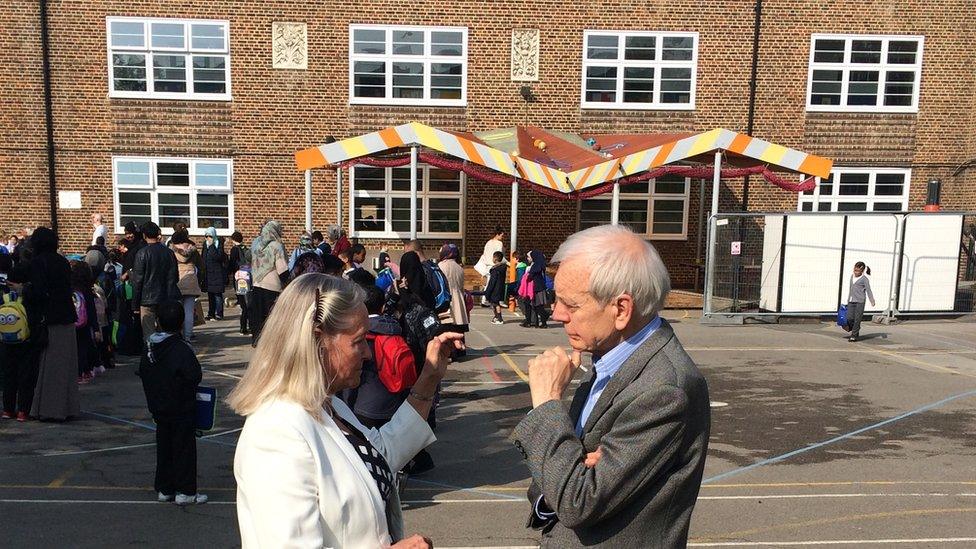
John Humphrys has been taking views on immigration across the country
The referendum debate is ending pretty much where it began: dominated by two issues. The economy and immigration.
The economic arguments are mostly about figures. The immigration debate is more emotional, more visceral.
Most of us don't have a clue as to how to evaluate the economic arguments for the obvious reason that we're not economists.
And how can anyone predict what's going to happen in five years, let alone 10 or 20?
But we do know about immigration.
We have seen its effects for ourselves and we have pretty strong views about whether it's been a good thing or a bad thing for Britain.
So, for the past several weeks, I've been travelling around the country for the Today programme trying to answer two questions: what effect has it had on the nation as a whole and, if we are afraid of more immigration, what exactly is it that we fear?
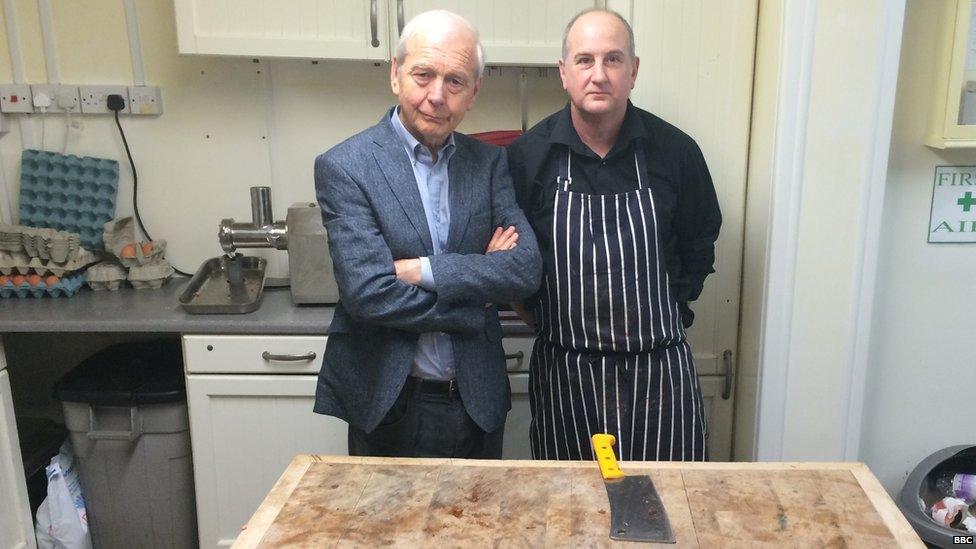
'You used to see them coming off trains every single day', says Shirebrook butcher David Straw
I started in Keighley, a small town in west Yorkshire where Asian immigrants began arriving in the sixties and kept coming.
Today it is a segregated town.
Behind the mosque, which dominates the centre, is where the millworkers once lived: tightly packed, back-to-back terraced houses with clothes lines strung across the streets.
Those houses are now home to Asian families. You scarcely see a white face.
They live in newer houses on the other side of the dividing line.
Who is to blame?
The owner of a local taxi firm told me when Asians like him tried to move into white areas they were greeted with resentment and sometimes worse.
And if too many Asian moved in, the whites would move out.
The local Imam called it "white flight". So far, so depressing.
Hostility between Asian and white people is increasing in the UK, says Imam Muhammad Ali
But when you talk, as I did, to older locals they seem surprisingly optimistic.
In a group of about 30 white people I brought together, almost all said they had at least one Asian friend and they seemed genuinely to believe that the two communities were coming together rather than growing even further apart.
I saw the 'new wave' of immigration further south in Derbyshire.
The small town of Shirebrook is dominated by the massive Sports Direct warehouse, which has attracted vast numbers of workers from eastern Europe, mostly Poland and Latvia.
And the town is simply too small to accommodate them. The locals see it as an invasion.
It began about two years ago and the police have conceded that they didn't act quickly enough to deal with the resulting tensions.
At one stage the town centre was almost a no-go area for locals.
That has changed, but people are seriously worried still about the pressure on local services.
Keighley is an illustration of how, for decades the debate about immigration in this country has centred on racial differences: alien cultures, habits, religion and the colour of the immigrants' skin.
But that is changing.
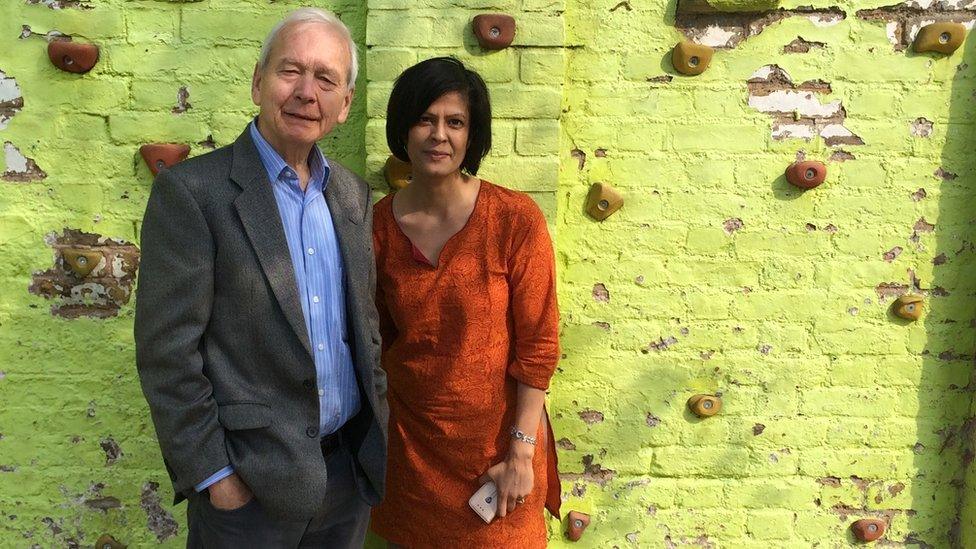
'It doesn't take long for children to feel British', says Salema Gulbahar, who was born in Bangladesh but grew up on a council estate in east London
A succession of laws outlawing racial discrimination have worked their magic.
Racist movements that have tried to become great national parties have failed miserably.
Our vocabulary has been transformed. We're shocked when we hear the N word.
The essential difference between the migrants at the heart of this referendum debate is that most of them are far poorer than we are. Hence the 'invasion 'of Shirebrook.
So the answer to the questions I posed at the beginning?
In the most obvious sense, immigration has had a profound effect on this nation, especially on our attitudes to the immigrants themselves.
We have become, to an extent unimaginable when the very first wave of post-war immigrants began arriving in 1948, a multicultural country.
And we mostly rub along well enough.
If we are afraid of where growing numbers of immigrants may take us, that fear is mostly not based on racial differences.
It's about how it will affect our economic and physical wellbeing: getting our children into a decent school; waiting too long in the GP surgery; competing for jobs and houses.
John Humphrys investigates people's concerns about immigration to the UK
Inevitably, it is largely influenced by where we live.
A couple of thousand immigrants arriving in London is barely noticeable. In a small town in Yorkshire or Derbyshire it can be overwhelming.
I've been reporting for the BBC for nearly 50 years and I can't remember a debate quite like this.
Whatever happens in the referendum the issues that have been raised will resonate in this country for generations to come.
- Published14 June 2016
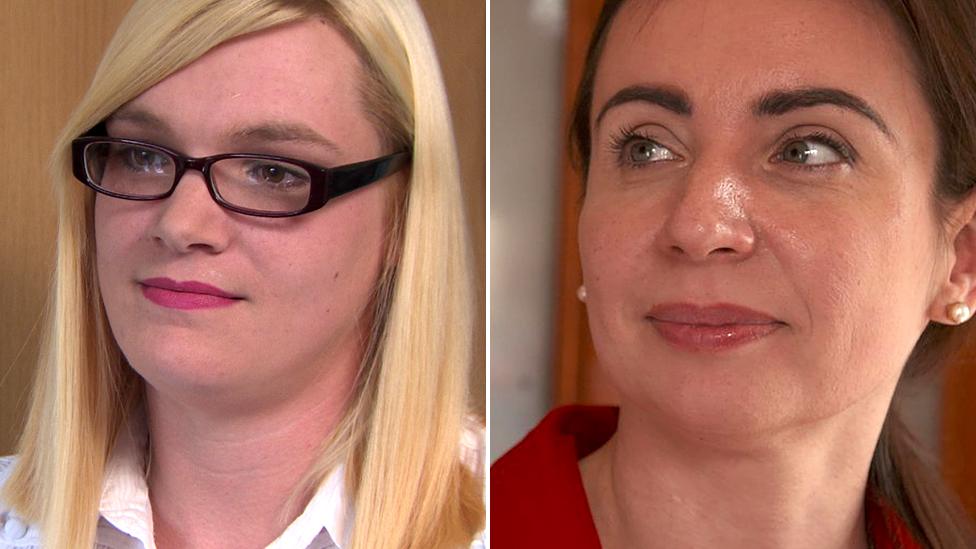
- Published15 June 2016
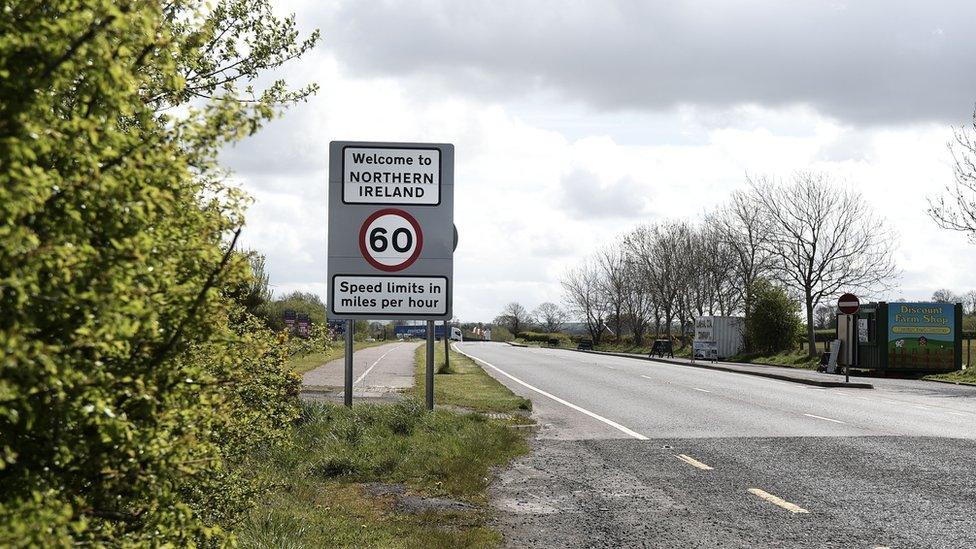
- Published29 April 2016
